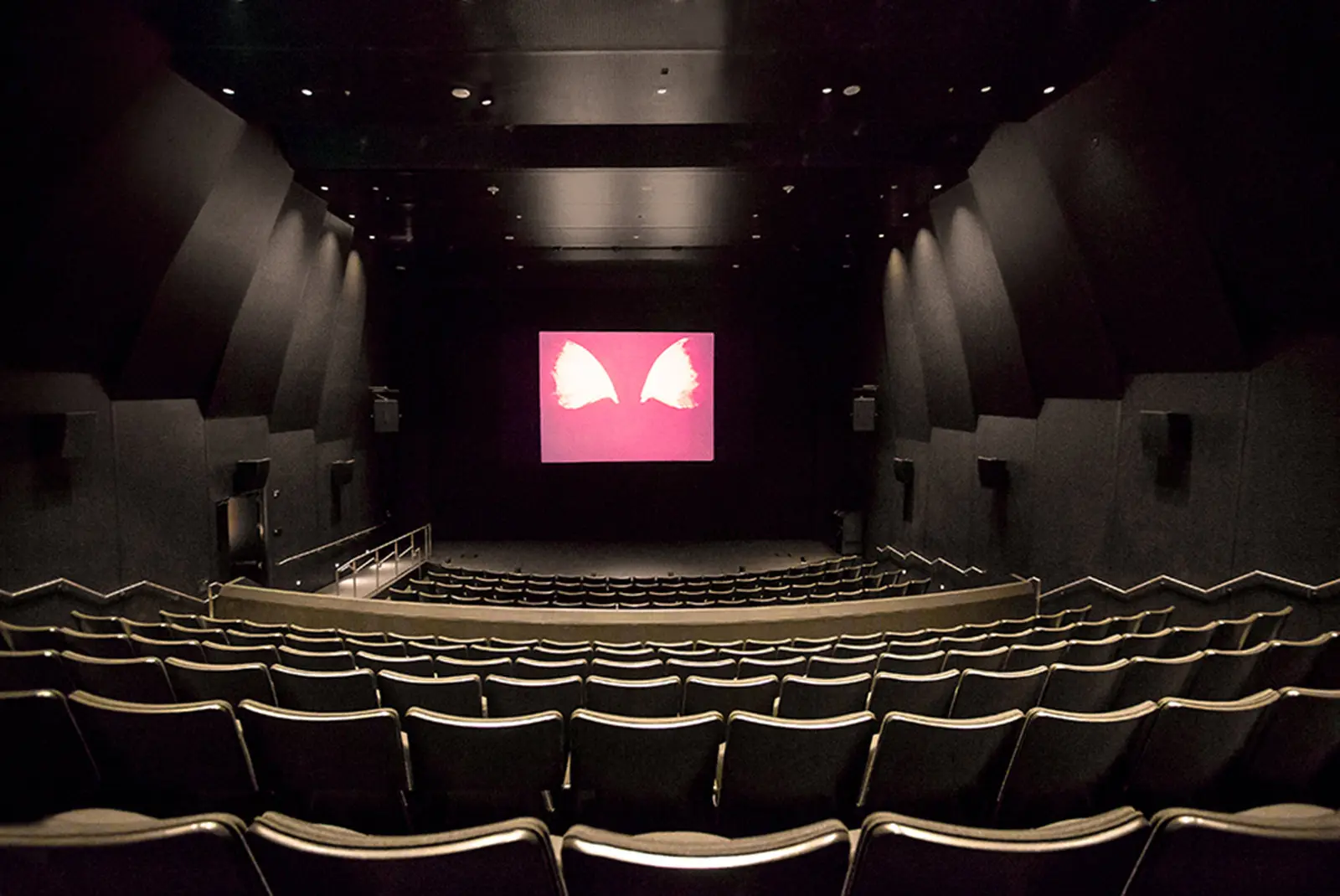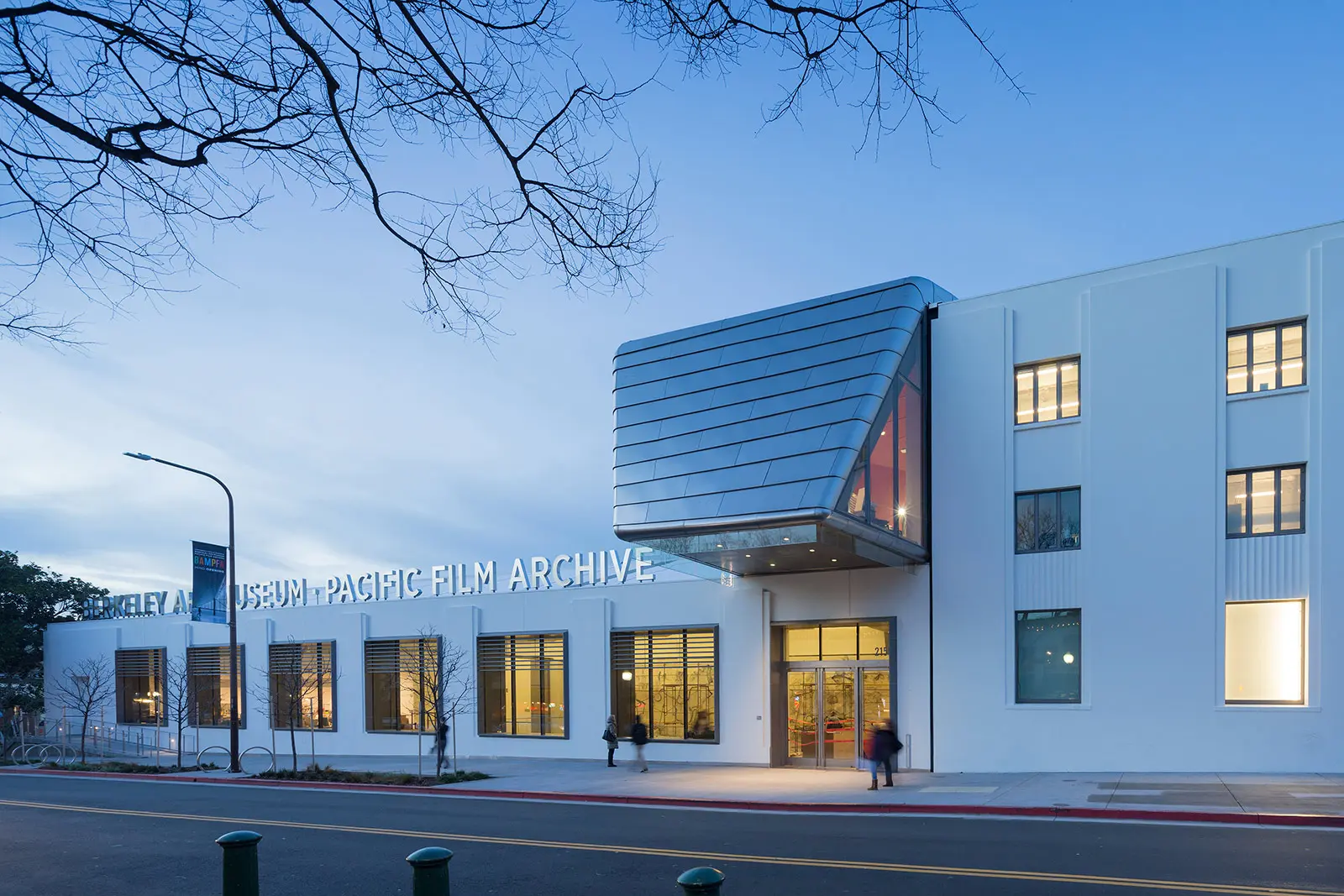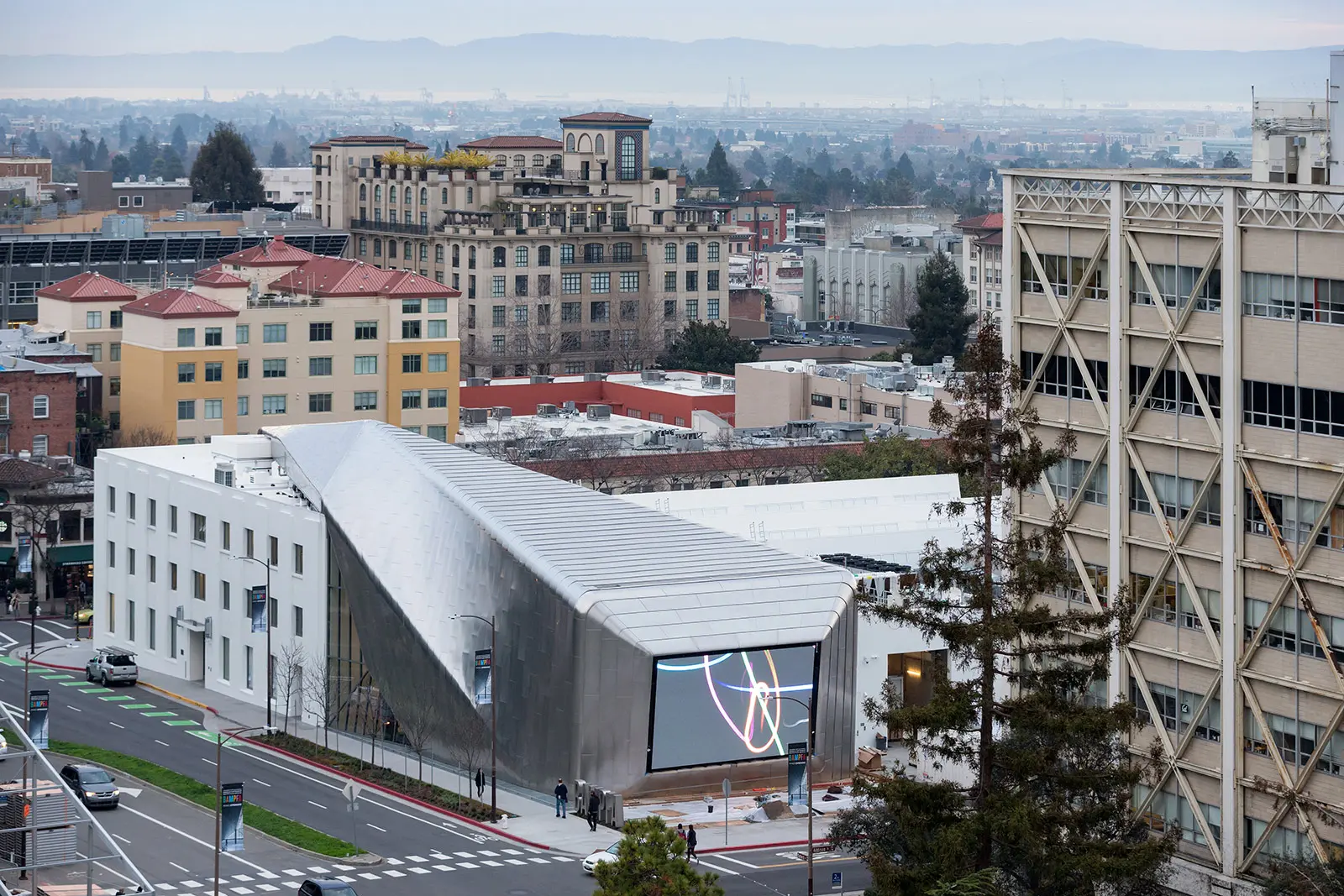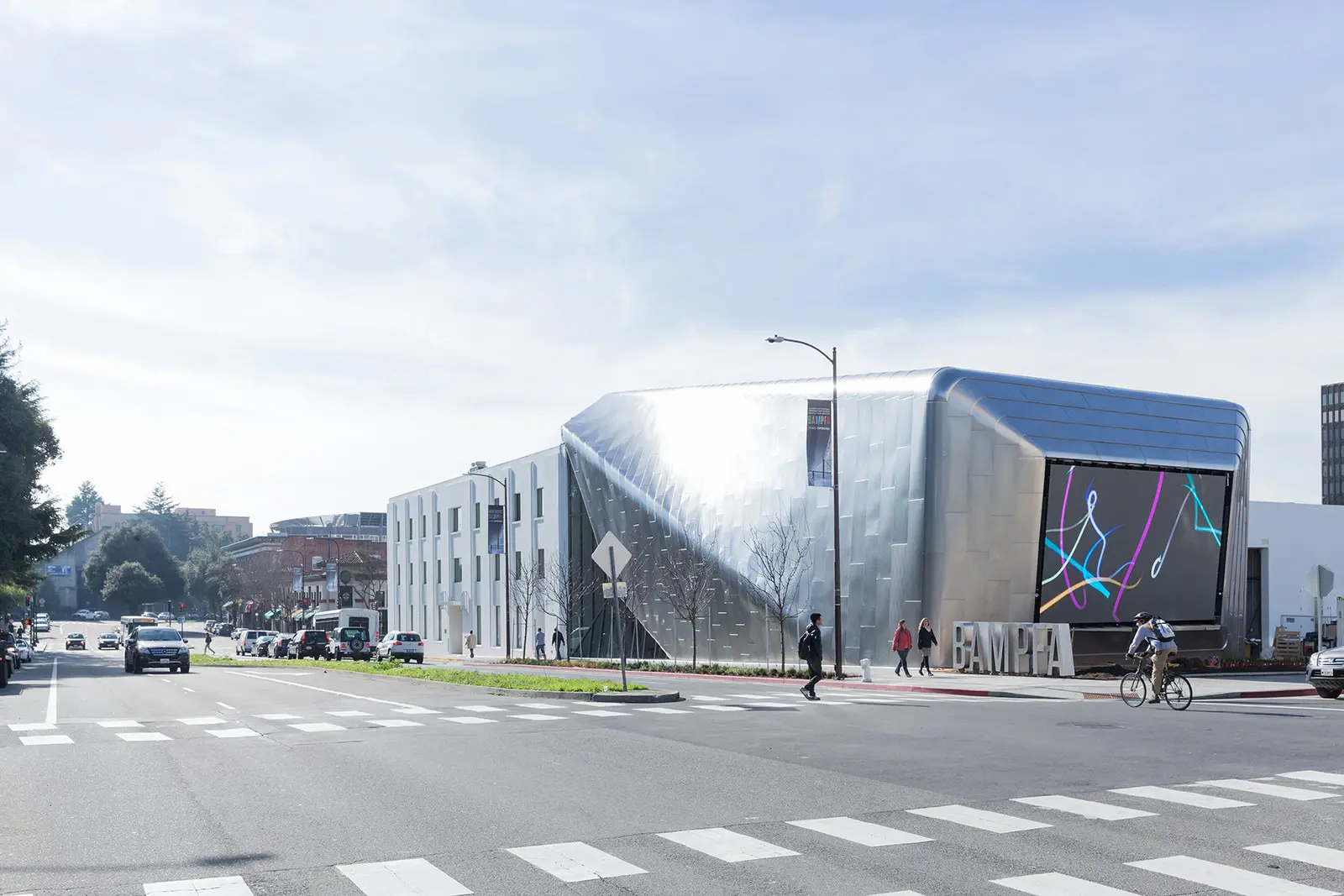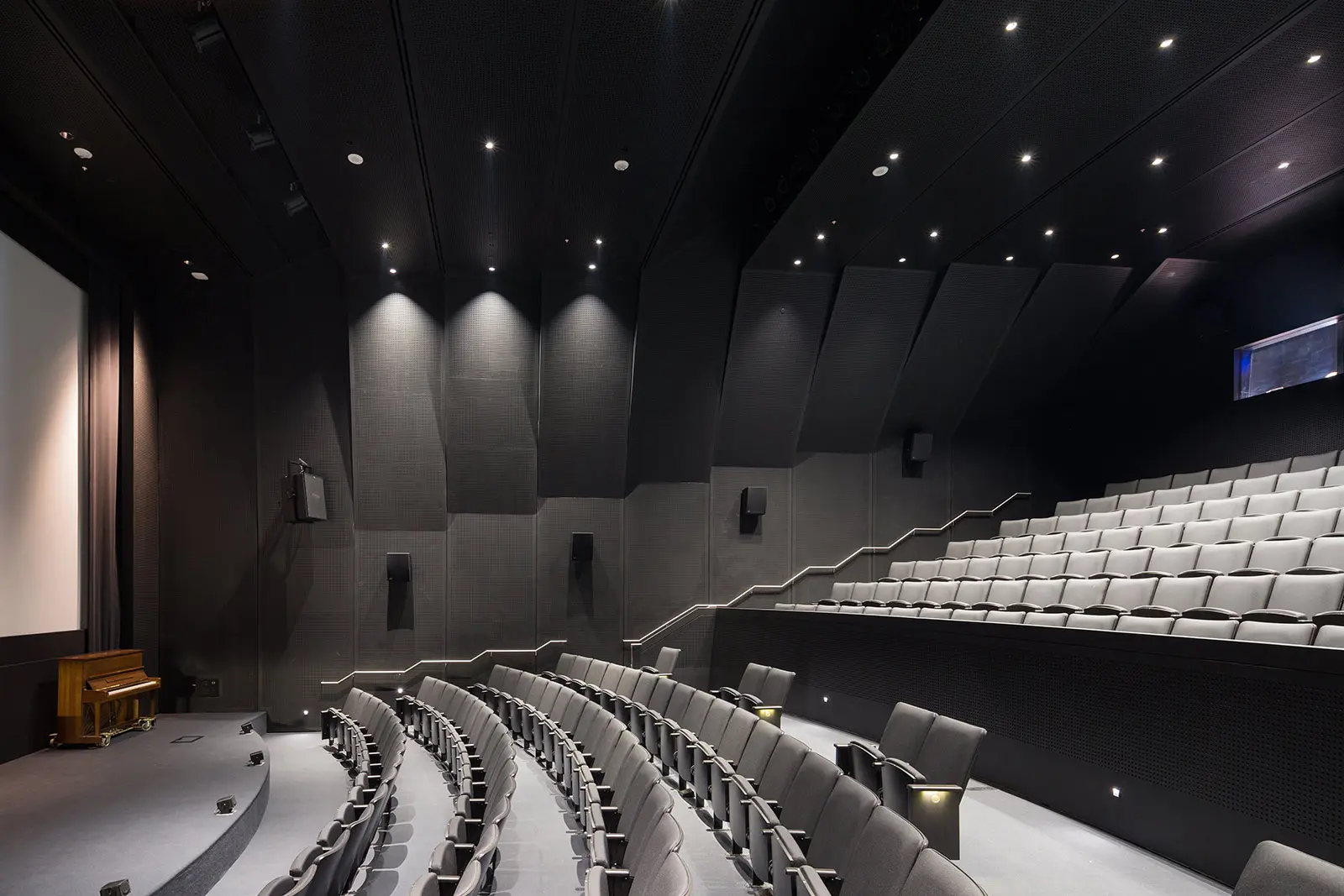It was incredible to hear everything from thunder to the most subtle dialogue with full impact and clarity, sounding exactly as it should. It made me realize how much this system will contribute to our programs for years to come.”
Larry RinderDirector, UC Berkeley Art Museum and Pacific Film Archive
Meyer Sound systems deliver powerful and intelligible sound for a diverse array of events at the new UC Berkeley Art Museum and Pacific Film Archive (BAMPFA) building. One of the nation’s premier institutions for the presentation of cinema, the recently reopened BAMPFA has installed a 7.1 Meyer Sound cinema system in its 232-seat Barbro Osher Theater, which hosts both film screenings and lectures and discussions regarding current films and art exhibits. Elsewhere, CAL column array loudspeakers provide sound reinforcement for a large, outdoor LED screen.
The Osher Theater is the first in the history of BAMPFA that was designed and built from the outset to meet the highest technical standards for film showings. “Aside from the 10 percent of our film screenings that are silent, sound is a key component of the experience,” says Larry Rinder, director of BAMPFA. “We wanted to have sound quality that was equal to our stringent standards for the visual component, as it is critical that the soundtrack be heard exactly as the film’s creators intended. In that regard, we feel fortunate to have a state-of-the-art Meyer Sound cinema system in our theatre.”
Rinder adds that the sonic experience was equally impressive for the inaugural public screening of Ingmar Bergman’s “The Seventh Seal” as it was during the system’s final tests, which included scenes from “A Bridge of Spies.” “It was incredible to hear everything from thunder to the most subtle dialogue with full impact and clarity, sounding exactly as it should,” he says. “It made me realize how much this system will contribute to our programs for years to come.”
For Susan Oxtoby, senior film curator, the Meyer Sound cinema system is the key aural component in BAMPFA’s commitment to a film-going experience without compromise. “We go to extraordinary lengths to make sure all our films—whether historical or contemporary—are presented in an inviting space that presents an ideal environment for hearing every detail. To that end, the auditorium’s quiet acoustical design is perfect for cinema presentations, and the Meyer Sound system performs beautifully, recreating every sonic nuance with no distortions or distractions.”
The system comprises three Acheron 80 screen channel loudspeakers, seven X-800C cinema subwoofers, and 16 HMS‑10 surround loudspeakers. A separate sound reinforcement system for speech and live music presentations consists of two CQ-1 loudspeakers and six MM‑4XP self-powered loudspeakers, while a Galileo loudspeaker management system with three Galileo 616 processors provides system drive and optimization.
Audio for BAMPFA’s 32-by-18-foot, exterior LED video screen is supplied by two CAL 96 column array loudspeakers with digital beam steering technology. Two portable 500-HP subwoofers are available as needed, and a Galileo loudspeaker management system with one Galileo 408 processor handles drive and control. The CAL loudspeakers are programmed with two presets: one for a near-field focus that keeps sound contained close to the building, and a long-throw setting that can cover an audience of hundreds when the adjacent street is closed for public film showings and other special events.
AV integrator for the BAMPFA project was Richmond, Calif.-based David Carroll Associates, with project management by Stewart Rosenthal, engineering by John Brenneis and Dennis Fortin, and design consultation by David Carroll. The initial scope of AV requirements was defined by New York-based theatrical design consultants Fisher Dachs Associates. Building design was by the New York-based architectural firm of Diller Scofidio + Renfro, with San Francisco-based firm EHDD serving as executive architect.

